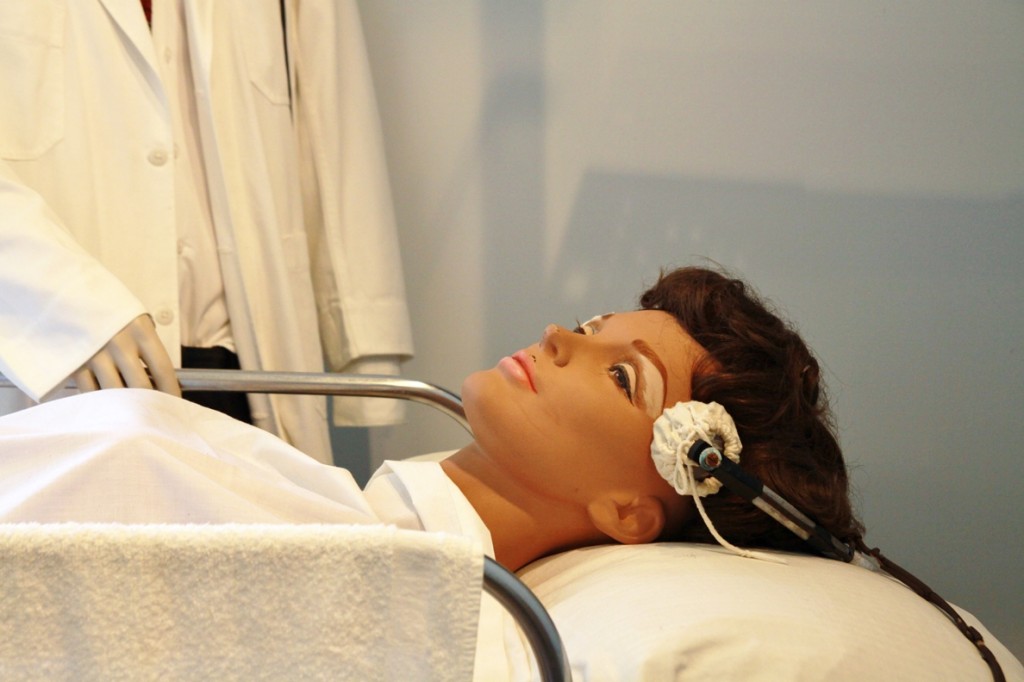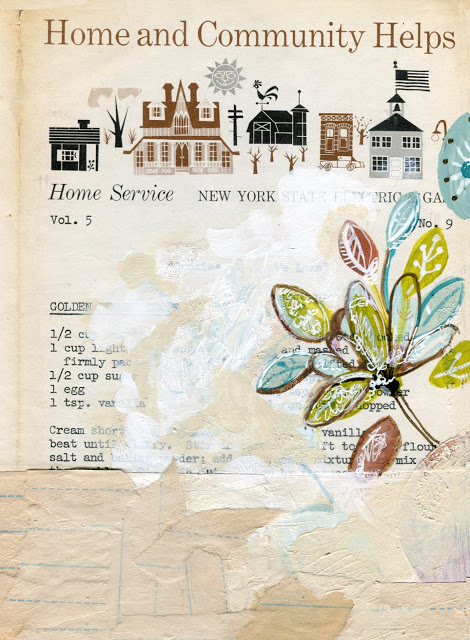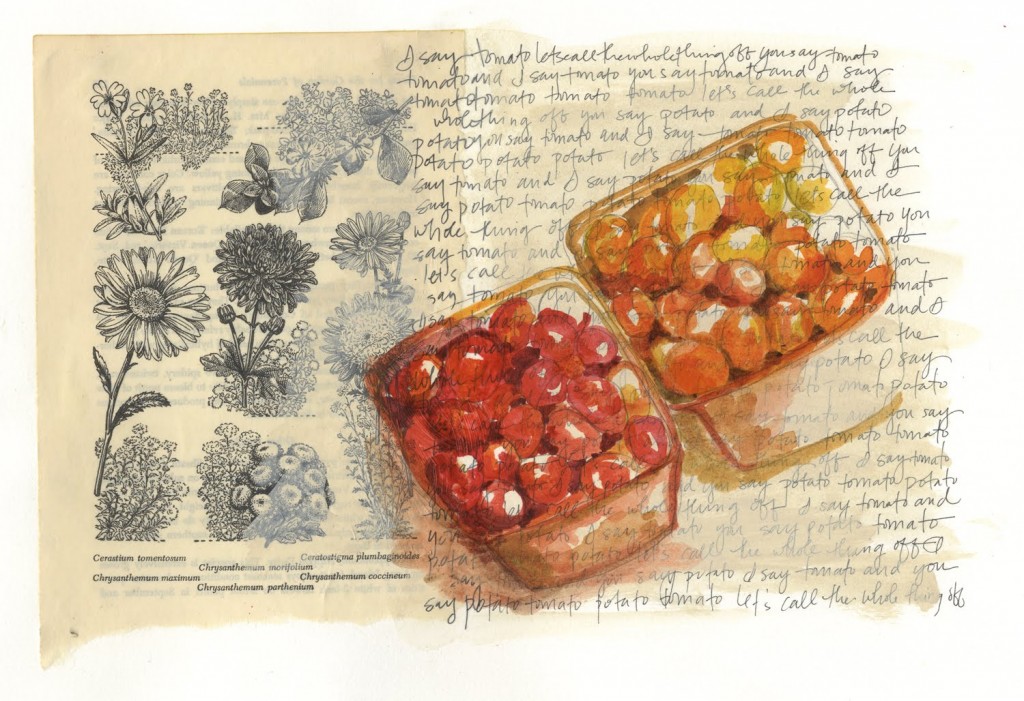
By Kate Haas
Until recently, I’d entered a hospital exactly three times in my life: for my own birth (technically my mom walked through the swinging doors on that occasion) and for the routine births of my two sons. That was it. At forty-five, I’d never so much as had my tonsils out. And I liked it that way. Oh, I knew all about the OR and the ER, the NICU, and the PICU. But that familiarity derived from TV hospital dramas and heartrending medical memoirs, long my guilty, voyeuristic pleasures.
This contented detachment from all things hospital ended abruptly when I learned that I needed surgery to remove a benign ovarian cyst. The news sunk in with horrid clarity. Scenes from those shows and books flashed into my mind: the tense OR, doctors barking medical jargon, machines hissing—and myself in the center of it all, off the sidelines, pitched into the drama. Even allowing for my propensity toward the melodramatic, it was an alarming scenario.
At the same time, I also felt ridiculous: here I was in midlife, scared of a situation most of my friends had dealt with before the age of ten. Of course, none of my third grade pals had read Atul Gawande’s Complications: A Surgeon’s Notes on an Imperfect Science before going in for those once-routine tonsillectomies.
It wasn’t the surgery itself that unnerved me the most. It was the idea of being put to sleep. What if I didn’t wake up? My best friend in college had knee surgery our freshman year. She woke up. My sister opened her eyes after a c-section. I wasn’t thinking about them, or the scads of people who awaken in recovery rooms every day. Instead, I fixated on a minor character in one of one of Ann Hood’s memoirs, a young woman who dies from a rare reaction to anesthesia while getting wisdom teeth removed. I told myself it was crazy, but I couldn’t shake the vision of looking blurrily up at a masked face, and then…the final darkness.
I looked forward to the first appointment with my surgeon. My book group had recommended Dr. M., whose name inevitably popped up in any online discussion of local OB/GYNs, trailing adjectives like awesome, caring, respectful, and empathetic. Maybe Dr. Awesome would calm my fears.
When we met, Dr. M. turned out to be unsmiling and matter-of-fact. “I can schedule you for Tuesday, “ she said briskly. This was Thursday. I blanched.
Dr. M. gave me an appraising look, then switched smoothly to empathetic. “Some women need more time to adjust to the idea of surgery. I’m, ah, guessing you’re one of those.” We settled on a date six weeks away. Then I asked about the anesthesia.
“There’s always a risk of complications,” she acknowledged. “But it’s very small. And they’ll give you something to help you relax before the surgery.”
I nodded. In all the books and doctor shows, patients are well tranquillized by the time they roll into the OR. With enough pharmaceutical assistance, maybe I wouldn’t be freaking out, after all.
To allay my fears during the final weeks before my surgery, I asked everyone I knew for reassurance about going under. “It was HEAVEN,” responded a woman on a parenting message board—clearly the mother of an infant. “A medically induced nap.”
At my pre-op appointment, Dr. M. concluded by prescribing post-surgery drugs. “Would you like Percocet or Vicodin?” she asked, pen poised over her pad like a waiter inquiring whether I preferred the merlot or the pinot.
I looked at her blankly. Was evaluating the relative merits of prescription painkillers one of those modern-age skills I had failed to acquire, like texting? I searched my brain. “Um, Dr. House is addicted to Vicodin, I know that,” I offered.
“Let’s go with the Percocet,” Dr. M. said quickly.
•••
A week later at the hospital, nurses set me up in a curtained cubicle under what looked like a white blow-up swim raft. A continuous flow of warm air into the raft made it settle into position just above me. I wondered why they didn’t just give me a blanket.
My husband and I waited in the cubicle, where I grew increasingly twitchy. He read Coraline out loud to pass the time. “Is this too creepy for you?” he asked, after the chapter where Coraline is locked in the closet with the ghost children.
I contemplated the warming raft, hovering over me like a monstrous cocoon, and the imminent prospect of being rendered unconscious, possibly forever, via a needle in my vein. “Not really,” I said.
Now and then nurses came around with apologies about the delay. Dr. M. was delivering an early baby, it seemed. “Oh, that’s fine!” I assured them, doing my best to impersonate the plucky patient everyone loves. “It’s actually the anesthesia that really bothers me.” I didn’t mention my anxiety about waking up afterwards, figuring this might attract the evil eye, make me look paranoid, or both.
“Don’t you worry,” one nurse told me. “They’ll give you something to help you relax.” I was relieved to learn that relaxation was still on the agenda. I needed some of that, and soon. The nurse checked my chart. “Ah, you’ve got Dr. A.,” she said. “He’s the best anesthesiologist in the hospital. Really skillful, just great. He’s the one I’d want for my own family.” She winked. “And he’s the best looking, too.”
What did it mean, I wondered aloud after she left, that the nurse thought my anesthesiologist was hot? Why did she tell me this? Was I meant to conclude that good looks correlated with skill?
“I think you’re over-analyzing this,” said my husband.
It took three nurses and five tries to get the IV into my apparently miniscule vein. By the end, I was thoroughly demoralized. In that motherly way of theirs, the nurses kept repeating that I was “being a trooper, honey.”
The anesthesiologist arrived at my cubicle to introduce himself. He was tall and dark, but no McDreamy. Here comes the relaxation, I thought gratefully. Instead, Dr. A. inquired about my breakfast—a ruse designed to reveal whether I’d eaten anything since midnight—and asked a few routine medical questions. “I’ll see you soon,” he said cheerfully before departing. I interpreted this to mean that he’d return momentarily to administer my medicinal stress relief.
Eventually, some bustle began in the vicinity of my cubicle. A gurney arrived, along with a new nurse. She was short and solid and looked very capable. “Ready to go?” she asked.
My husband was holding my hand. “Can I go along?”
“Absolutely,” said Nurse Capable.
I watched the florescent lights pass overhead as we rolled through the long, white corridors and into an elevator lined with burnished metal, like a high-end refrigerator. I tried to breathe calmly and listen to Nurse Capable’s soothing flow of chit-chat. It was mostly about Dr. A and what a great guy he was. “He’ll set you right up,” she said. “Like drinking a bottle of your favorite wine, that’s how relaxed you’ll be.” I appreciated her reassurance. But wasn’t I supposed to be relaxed already?
At the swinging doors to the OR, my husband kissed me goodbye—this part, at any rate, was just like the doctor shows—and I rolled in. The room was very cold and full of people. Bright lights pointed in all directions. Over to the side, on a blue-draped cart, lay a glittering row of sharp metal instruments. I stared at them in dismay. I wasn’t meant to be seeing this. I was supposed to be doped up, so I wouldn’t notice all those scalpels, or wouldn’t care if I did. Instead, I felt horribly lucid.
Nurse Capable maneuvered my gurney to the center of the room. “Ok, hop up on the table,” she instructed.
I’m not proud of my fascination with medical dramas. I admit, there’s an element of morbid rubbernecking involved. And I’ve known all along that they can’t be very realistic, not all of them. But never, not on St. Elsewhere (my gateway drug to the genre), or on any I’ve seen since, has anyone told the patient to hop up on the table. The patients are too relaxed—like I was supposed to be!—to hop anywhere.
Lacking other options, however, I hopped up. Dr. M.’s masked face loomed over me. “This is Dr. S., who’ll be assisting today,” she said, pointing to one of the gowned figures hovering nearby. “Our anesthesiologist will be along soon.” Then she nodded to toward another masked face. “And this is Alex.”
“Hey, how ya doin’?” said a youthful voice.
Who the heck was Alex? Was this Take Your Kid Brother to Work day? And couldn’t he guess how I was doing? “Frankly, I’m terrified,” I said. “Isn’t everyone?”
“Huh. You mean you’ve never had surgery?” Alex asked.
I couldn’t keep the edge from my voice. “No, I have never had surgery. Have most people?”
“Oh yeah, once you get to be, like, forty, it’s a lot more common.” In the mind of Alex —whoever he was—it was clear that forty lay on a remote horizon indeed. I hoped he wouldn’t be allowed too near any of those scalpels.
Dr. M. spoke up. “Ah, here’s Dr. A.,” she said soothingly. “I know you’re nervous about all this. He’s giving you something to help you relax right now.”
I looked up at the lights. I looked around at the instruments and the machinery. A couple of minutes seemed to pass. My final minutes, possibly. “I don’t feel relaxed,” I said.
Seemingly two seconds later, I opened my eyes to a bright yellow light. My mouth felt coated in sawdust, and I was barely conscious, but I knew instantly, gratefully, that I had woken up, after all. “I’m thirsty,” I croaked, hoping someone was listening. “I’m really thirsty. Is everything okay?”
“What did she say?” said a voice.
“I couldn’t make it out,” said another.
“I’m thirsty,” I repeated. “Can I have some water?” The words seemed to float languidly above me into the brightness, like the viscous bubbles drifting upward in a lava lamp. I heard each syllable go by and slowly realized why no one understood: I was speaking Arabic. For it’s own inscrutable reasons, my consciousness had emerged from its chemical sleep set to a language I hadn’t spoken on a daily basis since leaving the Peace Corps, nearly two decades earlier.
I’d navigated a good deal of foreign territory during the course of that long, strange day. The doctor shows had prepared me for the high tech equipment and medical jargon. The memoirs had given me other people’s stories to latch onto. Still, so much had been unfamiliar. (I never did discover the identity of Alex). And yet, I realized afterward, nothing had been quite so alien, so mysterious, as that moment of awakening. It was what I’d fixated on for so many weeks, and it had gone exactly the way it was supposed to. Yet the return to consciousness, and the surfacing of those long dormant words, had brought with it a different, unlooked for awareness: the strangest thing I’d encountered in the hospital wasn’t frightening at all, and it turned out to be inside my own head.
•••
KATE HAAS is a creative nonfiction editor at Literary Mama and the publisher of Miranda, a long-running print zine about motherhood. Her writing has appeared in Salon, Brain, Child, Babble, and The Toronto Star. She lives in Portland, Oregon, with her family. Read more of her writing at www.katehaas.com.

 Follow
Follow







